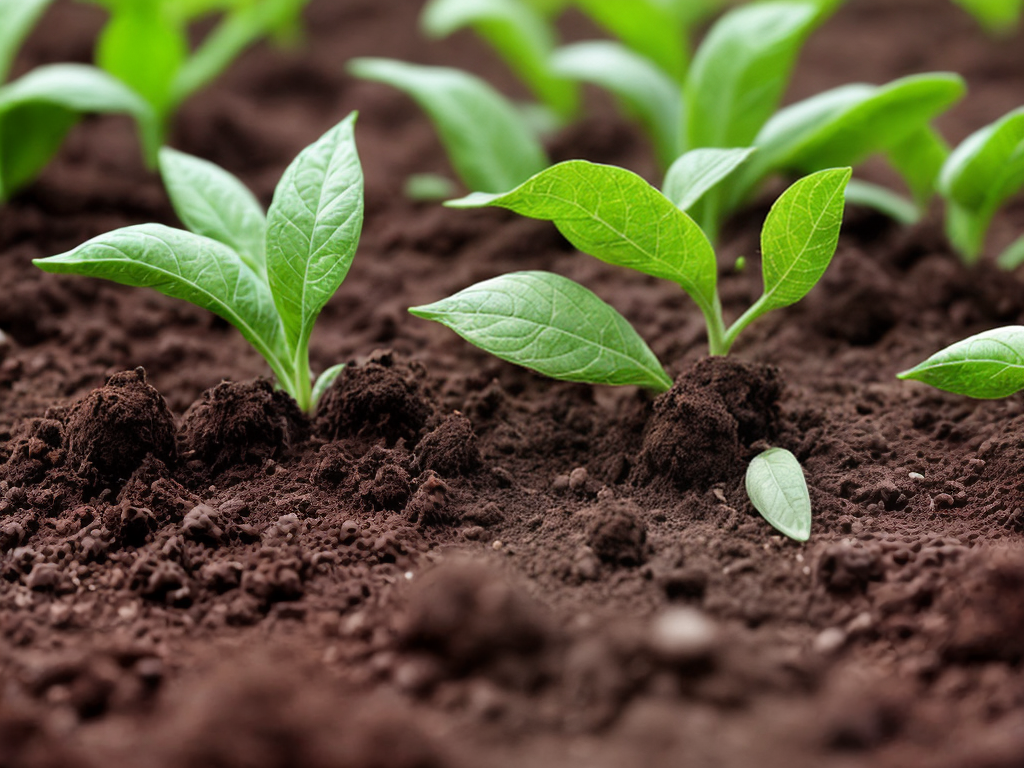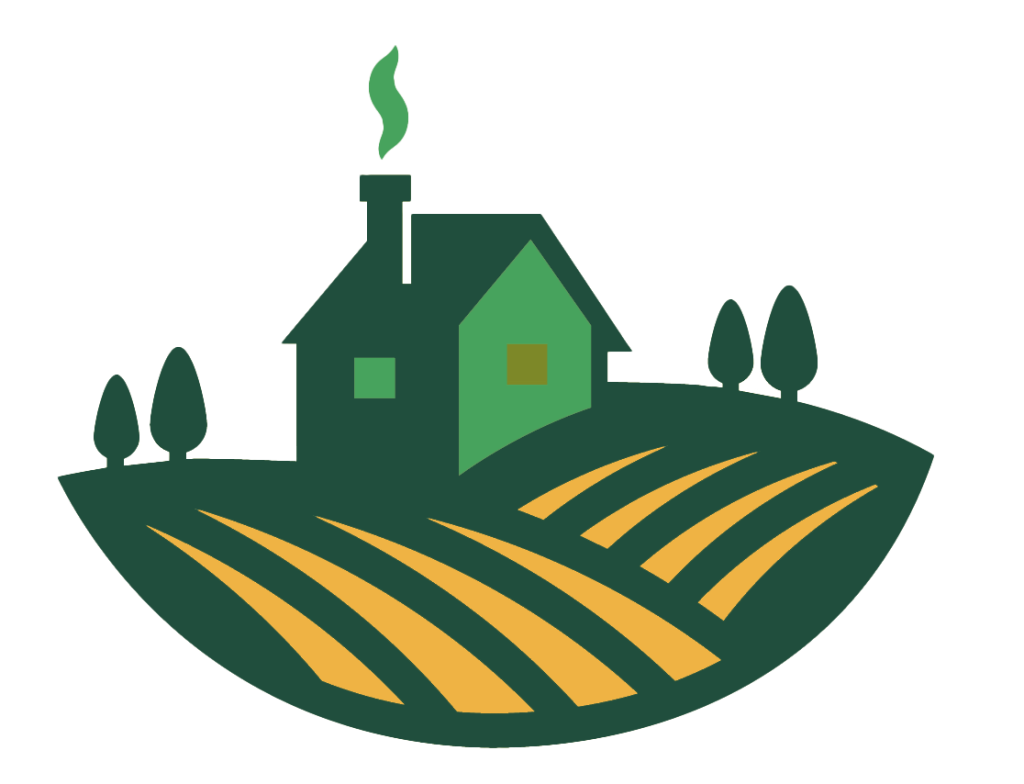

As an avid organic vegetable gardener, I know the importance of starting with optimal soil. It’s the foundation for healthy, nutrient-rich plants. In this article, I’ll guide you through the steps of preparing your soil for a successful organic garden. From testing its composition to understanding pH levels, adding organic matter, and choosing the right amendments, we’ll cover it all. Let’s dive in and discover the secrets to creating thriving soil that will yield bountiful, delicious vegetables.
Importance of Organic Soil
To achieve successful organic vegetable gardening, it is essential to understand the importance of organic soil. Organic soil is the foundation for healthy plant growth and abundant harvests. One key aspect of organic soil is its fertility, which refers to its ability to provide essential nutrients to plants. Testing the soil is a crucial step in determining its fertility. There are various soil testing methods available, such as sending samples to a lab or using DIY kits. These tests analyze important factors like pH levels, nutrient content, and organic matter. By understanding the fertility of your soil, you can make informed decisions about necessary amendments and ensure that your plants receive the nutrients they need for optimal growth. Organic soil fertility is the backbone of organic gardening, and investing time in soil testing will yield bountiful rewards in the form of healthy, thriving plants.
Testing Your Soil’s Composition
When it comes to organic vegetable gardening, testing your soil’s composition is crucial for success. Two important factors to consider are soil pH and nutrient content. Soil pH affects the availability of nutrients to plants, so it’s important to know if your soil is acidic, neutral, or alkaline. Additionally, testing for organic matter content will help you determine the fertility and structure of your soil, allowing you to make necessary amendments for optimal plant growth.
Soil Ph and Nutrients
I can test my soil’s composition and determine its pH and nutrient levels. Testing the soil is crucial in understanding its current state and identifying any potential issues such as soil nutrient deficiencies or imbalanced pH levels. By conducting a soil test, I can gain valuable insights into the nutrient content of my soil, including the levels of nitrogen, phosphorus, and potassium. This information allows me to make informed decisions about soil amendments and adjustments.
To evoke emotions in the audience, here are three key points to consider:
- Understanding my soil’s composition will help me create the ideal growing conditions for my organic vegetable garden.
- Testing for soil pH and nutrient levels ensures that my plants receive the necessary nutrients for healthy growth and maximum yields.
- Identifying any deficiencies or imbalances in the soil will allow me to address them promptly and effectively.
Organic Matter Content
By testing my soil’s organic matter content, I can determine the quality of its composition and make informed decisions for optimal soil preparation in my organic vegetable gardening. Organic matter plays a crucial role in improving drainage and soil aeration. Soils with high organic matter content have better structure and water-holding capacity, allowing excess water to drain away easily. This prevents waterlogging and reduces the risk of root rot and other water-related diseases. Additionally, organic matter enhances soil aeration by creating pore spaces, allowing oxygen to reach the roots and facilitating nutrient uptake. Testing the organic matter content of my soil will help me gauge its fertility and identify any deficiencies. This information will guide me in choosing the right amendments and organic fertilizers to improve the soil’s organic matter content, ensuring optimal conditions for healthy vegetable growth.
Understanding Soil Ph Levels
Understanding soil pH levels is crucial for successful organic vegetable gardening. pH levels determine the acidity or alkalinity of the soil, which directly affects nutrient availability to plants. By balancing soil acidity, we can create an optimal growing environment, ensuring healthy plants and abundant harvests.
Importance of Ph
Why is it important to consider the pH levels of your soil when preparing it for organic vegetable gardening?
- Proper pH levels ensure optimal nutrient availability for plants.
- Imbalanced pH can lead to nutrient deficiencies or toxicities.
- pH affects the activity of soil organisms that support plant growth.
Maintaining the right pH level is crucial for successful organic vegetable gardening. It directly impacts the availability of essential nutrients in the soil. A pH that is too acidic or alkaline can hinder nutrient uptake, leading to stunted growth and poor yields. By balancing soil alkalinity or adjusting soil acidity, you create an environment where plants can thrive. Additionally, pH affects the activity of soil microorganisms that break down organic matter, releasing nutrients for plant absorption. Understanding and managing pH levels is a practical step towards ensuring healthy, productive organic vegetable gardens.
Balancing Soil Acidity
I frequently adjust the acidity of my soil to ensure optimal pH levels for my organic vegetable garden. Balancing soil acidity is important because extreme pH levels can limit nutrient availability and hinder plant growth. To achieve the right pH, I use natural soil amendments that help to neutralize or adjust the soil’s acidity. One effective method is to add agricultural lime, which raises the pH and reduces soil acidity. Another option is to incorporate organic matter such as compost or well-rotted manure, which can help buffer the soil and maintain a balanced pH. Regular soil testing is crucial to monitor pH levels and determine the appropriate amount of amendments needed. By balancing soil alkalinity using natural soil amendments, I can create an optimal growing environment for my organic vegetables.
Adding Organic Matter to Improve Soil Structure
To improve soil structure, I add organic matter to my garden beds. This not only helps in improving drainage but also prevents soil erosion. Here are three reasons why adding organic matter is beneficial for your garden:
-
Increases water-holding capacity: Organic matter acts as a sponge, absorbing water and holding it in the soil for plants to access during dry periods. This helps in preventing water runoff and ensures that plants receive a steady supply of moisture.
-
Enhances soil structure: Organic matter improves the soil’s texture, making it crumbly and easy to work with. This allows plant roots to penetrate the soil more easily, promoting healthy growth and nutrient absorption.
-
Provides essential nutrients: Organic matter is rich in nutrients that plants need for their growth. As it decomposes, it releases these nutrients slowly, providing a continuous supply to your plants throughout the growing season.
Choosing the Right Amendments for Nutrient-Rich Soil
When it comes to creating nutrient-rich soil for my organic vegetable garden, I have found that there are three key points to consider. First, composting is an excellent way to enrich the soil with organic matter and essential nutrients. Second, using natural fertilizers and amendments can provide additional nutrients that may be lacking in the soil. Lastly, regularly testing the soil’s nutrient levels is crucial to ensure that the amendments are effectively addressing any deficiencies. By focusing on these three points, I can ensure that my vegetable garden thrives with healthy, nutrient-rich soil.
Composting for Soil Enrichment
After carefully selecting the right amendments for nutrient-rich soil, I began composting to enhance the soil’s fertility for my organic vegetable garden. Composting is a natural process that involves the decomposition of organic materials, such as kitchen scraps, yard waste, and leaves. It offers numerous benefits for the garden and the environment, including:
- Improved soil structure: Compost helps improve soil structure by adding organic matter, which enhances water retention and drainage.
- Nutrient-rich soil: Composting creates nutrient-rich soil by breaking down organic materials into essential nutrients that plants need for healthy growth.
- Reduced waste: By composting kitchen scraps and yard waste, we can divert waste from landfills and reduce greenhouse gas emissions.
To achieve successful composting, it is important to follow proper composting techniques, such as maintaining the right balance of green (nitrogen-rich) and brown (carbon-rich) materials, turning the compost pile regularly, and ensuring proper aeration and moisture levels.
Natural Fertilizers and Amendments
While considering the optimal soil preparation for my organic vegetable garden, I carefully evaluate natural fertilizers and amendments to select the right ones for nutrient-rich soil. Natural fertilizers and amendments are essential for providing the necessary nutrients to plants and improving soil fertility. One way to achieve this is through composting, as discussed in the previous subtopic. Additionally, there are other natural options available, such as manure, bone meal, and seaweed, which can be used as fertilizers. These amendments contain essential nutrients like nitrogen, phosphorus, and potassium, which are vital for plant growth. In order to ensure natural pest control and a healthy garden ecosystem, companion planting can be incorporated. Companion plants, like marigolds or basil, can help deter pests and attract beneficial insects, creating a balanced and sustainable garden environment.
| Natural Fertilizers and Amendments |
|---|
| – Compost |
| – Manure |
| – Bone Meal |
| – Seaweed |
Testing Soil Nutrient Levels
Continuing the discussion on optimizing soil preparation for my organic vegetable garden, I assess the nutrient levels of the soil by testing and choose the appropriate amendments to ensure nutrient-rich soil.
To determine the nutrient content of the soil, I conduct a soil nutrient testing. This analysis provides valuable information about the levels of essential elements such as nitrogen, phosphorus, and potassium. Armed with these results, I can make informed decisions about which amendments to add to my soil.
Here are three essential factors to consider when interpreting the soil fertility analysis:
- Nitrogen: A crucial nutrient for healthy plant growth, nitrogen promotes leafy green growth and vibrant foliage.
- Phosphorus: This nutrient is essential for root development, flowering, and fruiting. It aids in energy transfer and overall plant health.
- Potassium: Promoting disease resistance and strong stem development, potassium plays a vital role in the overall vigor and productivity of plants.
Composting for Healthy Soil
To achieve healthy soil in organic vegetable gardening, I rely on composting. Composting is a technique that involves decomposing organic materials to create nutrient-rich soil amendments. The benefits of composting are numerous. Firstly, it helps to improve soil structure by adding organic matter, which increases the soil’s ability to hold water and nutrients. Secondly, composting promotes beneficial microbial activity in the soil, which enhances nutrient availability for plants. Additionally, composting reduces the need for synthetic fertilizers and pesticides, making it an environmentally friendly choice. One popular method of composting is vermicomposting, which involves using worms to break down organic matter. Vermicomposting has the added benefit of producing worm castings, which are highly fertile and contain beneficial microbes. By incorporating composting techniques, such as vermicomposting, into my gardening practices, I am able to create healthy soil that supports the growth of organic vegetables.
Mulching to Retain Moisture and Control Weeds
I rely on mulching as a way to retain moisture and control weeds in my organic vegetable garden. Mulching offers several benefits that make it an essential practice for any gardener. Firstly, it helps to conserve moisture in the soil by reducing evaporation, ensuring that my plants have a steady supply of water. Secondly, mulch acts as a barrier, preventing weeds from germinating and competing with my vegetables for nutrients and sunlight. Finally, mulching also helps to regulate soil temperature, keeping it cooler during hot summer days and warmer during colder nights. When it comes to weed control techniques, mulching is a natural and effective solution that not only reduces the need for manual weeding but also improves the overall health of my garden.
Irrigation Techniques for Optimal Soil Moisture
As a gardener who relies on mulching for moisture retention and weed control in my organic vegetable garden, I frequently employ effective irrigation techniques to ensure optimal soil moisture. One of the most efficient methods I use is drip irrigation. This technique involves placing small hoses or tubes with tiny holes near the base of the plants, delivering water directly to the roots. Not only does this conserve water by minimizing evaporation, but it also prevents water from splashing onto the leaves, reducing the risk of disease. Another strategy I implement is using raised beds. These elevated planting areas promote better drainage and prevent waterlogging, ensuring that the soil remains moist without becoming overly saturated. By combining drip irrigation with raised beds, I am able to maintain the perfect level of soil moisture for my organic vegetables.
| Advantages of Drip Irrigation | Advantages of Raised Beds |
|---|---|
| Conserves water | Better drainage |
| Reduces the risk of disease | Prevents waterlogging |
| Targets water directly to the roots | Promotes optimal soil moisture |
Incorporating these irrigation techniques into my gardening practices has greatly improved the health and productivity of my organic vegetable garden.
Beneficial Soil Microorganisms for Plant Health
Implementing effective irrigation techniques and employing raised beds in my organic vegetable garden has not only improved soil moisture levels, but it has also fostered the growth of beneficial soil microorganisms for enhanced plant health. Research on beneficial microorganisms has shown that these tiny organisms play a crucial role in soil fertility and plant growth. Here are three reasons why they are essential for the health of your plants:
- Beneficial microorganisms enhance nutrient availability by breaking down organic matter and releasing nutrients that plants can absorb.
- They help suppress harmful pathogens and pests by competing for resources and producing compounds that inhibit their growth.
- Soil microorganism interactions improve soil structure by producing substances that bind soil particles together, creating a crumbly and well-aerated soil.
Protecting Soil From Erosion and Compaction
To protect the soil from erosion and compaction, a crucial step is to implement proper soil management techniques. Erosion can occur when wind or water carries away the top layer of soil, leaving it vulnerable and depleted of nutrients. To prevent this, it is important to establish vegetative cover, such as grass or cover crops, which act as a protective barrier against erosion. Additionally, using mulch can help retain moisture and prevent soil erosion by reducing the impact of raindrops on the soil surface. Another issue to address is soil compaction, which occurs when the soil particles are pressed together, making it difficult for roots to penetrate and access nutrients. To prevent soil compaction, it is important to avoid heavy machinery on the soil, especially when it is wet, as well as to minimize foot traffic in the garden. Implementing these soil management techniques will help protect the soil from erosion and prevent soil compaction, ensuring a healthy and productive organic vegetable garden.
Crop Rotation for Soil Health and Disease Prevention
To maintain soil health and prevent the spread of diseases, I actively practice crop rotation in my organic vegetable garden. Crop rotation involves growing different crops in a specific order on the same plot of land each year. This practice offers numerous benefits, such as:
- Improved Soil Fertility: Rotating crops helps to balance nutrient levels in the soil and reduce the depletion of specific nutrients.
- Disease Prevention: By rotating crops, the risk of soil-borne diseases is reduced. Different crops have varying susceptibility to diseases, so rotating them helps break the disease cycle.
- Pest Control: Crop rotation can also deter pests that are specific to certain crops, reducing the need for chemical pesticides.
In addition to these benefits, I also make sure to include disease-resistant crops in my rotation plan. This further enhances the overall health of my soil and promotes successful organic gardening.
Maintaining and Monitoring Soil Health Over Time
Continuing to prioritize soil health, I actively maintain and monitor the condition of my organic vegetable garden over time. One of the key aspects of maintaining soil health is ensuring its fertility. I regularly add organic matter, such as compost or well-rotted manure, to enrich the soil and provide essential nutrients for my vegetables. Additionally, I conduct regular soil tests to assess its nutrient levels and pH balance. This helps me make informed decisions about the type and quantity of fertilizers to use. Another crucial aspect is preventing soil erosion. To achieve this, I employ practices like mulching and cover cropping. Mulching helps retain moisture and prevent runoff, while cover cropping adds organic matter and protects the soil from erosion caused by wind and water. By maintaining soil fertility and preventing erosion, I can ensure the long-term health and productivity of my organic vegetable garden.


